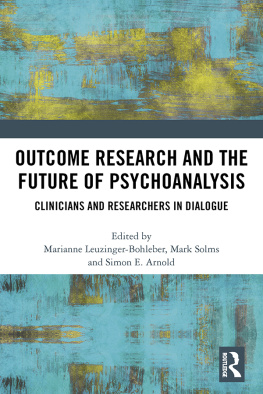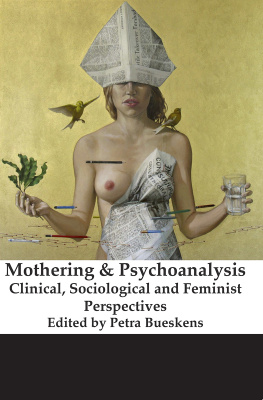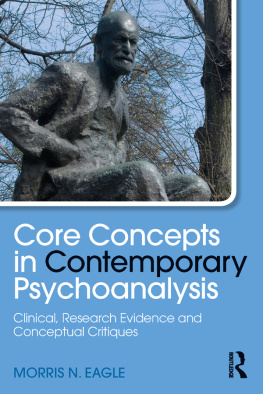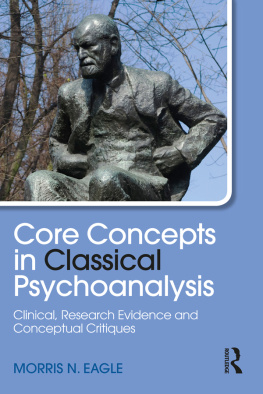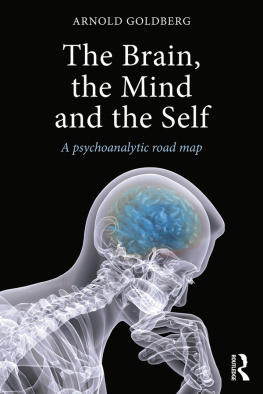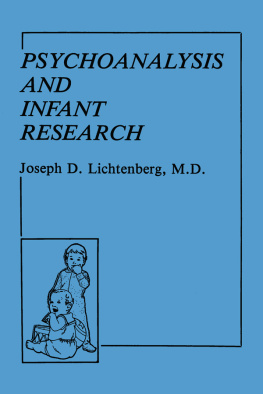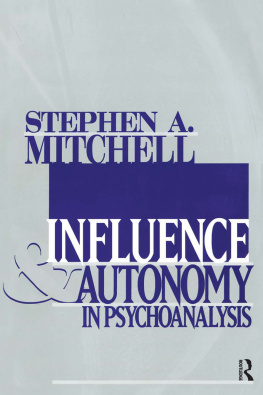Table of Contents
Guide
Print Page Numbers
Outcome Research and the Future of Psychoanalysis
Outcome Research and the Future of Psychoanalysis explores the connection between outcome studies and important and complex questions of clinical practices, research methodologies, epistemology, and sociological considerations. Presenting the ideas and voices of leading experts in clinical and extra-clinical research in psychoanalysis, the book provides an overview of the state of the art of outcome research, its results and implications. Furthermore, its contributions discuss the basic premises and ideas of outcome research and in which way the contemporary Zeitgeist might shape the future of psychoanalysis.
Divided into three parts, the book begins by discussing the scientific basis of psychoanalysis and advances in psychoanalytic thinking as well as the state of the art of psychoanalytic outcome research, critically analyzing so-called evidence-based therapies. , several psychoanalysts review the importance of critical thinking and research in psychoanalytical education.
Thought-provoking and expertly written and researched, this book is a useful resource for academics, researchers and postgraduate students in the fields of mental health, psychotherapy, and psychoanalysis.
Marianne Leuzinger-Bohleber was Director in charge of the Sigmund-Freud-Institut (SFI) in Frankfurt a.M., Germany (20012016), now senior scientist at SFI and University Medicine Mainz, as well as staff member of the IDeA Center in Frankfurt a.M.
Mark Solms is Chair of Neuropsychology at the University of Cape Town and Groote Schuur Hospital and Chair of the Research Committee of the International Psychoanalytical Association.
Simon E. Arnold is a Research Assistant at the Sigmund-Freud-Institut in Frankfurt a.M., Germany.
Outcome Research and the Future of Psychoanalysis
Clinicians and Researchers in Dialogue
Edited by Marianne Leuzinger-Bohleber, Mark Solms and Simon E. Arnold

First published 2020
by Routledge
2 Park Square, Milton Park, Abingdon, Oxon OX14 4RN
and by Routledge
52 Vanderbilt Avenue, New York, NY 10017
Routledge is an imprint of the Taylor & Francis Group, an informa business
2020 selection and editorial matter, Marianne Leuzinger-Bohleber, Mark Solms and Simon E. Arnold; individual chapters, the contributors
The right of Marianne Leuzinger-Bohleber, Mark Solms and Simon E. Arnold to be identified as the authors of the editorial material, and of the authors for their individual chapters, has been asserted in accordance with sections 77 and 78 of the Copyright, Designs and Patents Act 1988.
All rights reserved. No part of this book may be reprinted or reproduced or utilized in any form or by any electronic, mechanical, or other means, now known or hereafter invented, including photocopying and recording, or in any information storage or retrieval system, without permission in writing from the publishers.
Trademark notice: Product or corporate names may be trademarks or registered trademarks, and are used only for identification and explanation without intent to infringe.
British Library Cataloguing-in-Publication Data
A catalogue record for this book is available from the British Library
Library of Congress Cataloging-in-Publication Data
A catalog record has been requested for this book
ISBN: 978-0-367-23666-3 (hbk)
ISBN: 978-0-429-28111-2 (ebk)
Typeset in Bembo
by Wearset Ltd, Boldon, Tyne and Wear
Contents
Carolina Altimir is Professor of Psychology, Universidad de Las Amricas, with a PhD from the Universidad Catlica de Chile. She is the Deputy Director at the Center for Psychotherapy Research, CIPsi, Santiago de Chile.
Simon E. Arnold, Dipl.-Psych. is research associate at the Sigmund Freud Institut in Frankfurt a.M. He studied psychology, literary studies, art history and philosophy in Konstanz, Paris, and Beer Sheva. His research interests include clinical psychoanalysis and the history of scienceespecially neurology, forensics and psychiatrysocial psychology and critical theory. Currently he works on a study on trauma and psychosocial support for refugees and is part of a research group on the aftermath of the Holocaust on Jewish and non-Jewish Germans. He is member of the Gesellschaft fr psychoanalytische Sozialpsychologie and writes a column on the quotidianity of myths.
Ulrich Bahrke, is a PD Dr. med. for Psychiatry and Psychotherapy and psychoanalyst (DPV/IPA) at the Sigmund-Freud-Institut in Frankfurt a.M., Germany.
Manfred E. Beutel, Prof. Dr. med., is the Director of the Clinic for Psychosomatic Medicine and Psychotherapy University Medicine Mainz (since 2004), and the Postgraduate Training Program for psychodynamic psychotherapy at the Johannes Gutenberg University Mainz, Germany. He has conducted numerous psychotherapy trials, especially RCTs on the efficacy of psychodynamic psychotherapy (online and offline). He co-edits the series of psychodynamic treatment manuals (Hogrefe, Gttingen).
John F. Clarkin, PhD, is Clinical Professor of Psychology in Psychiatry at the Weill Cornell Medical College, New York City. He serves as the Co-Director of the Personality Disorders Institute (PDI) of the New York Presbyterian Hospital, the university hospital of Cornell and Columbia. Dr. Clarkin is the author of numerous articles and books on psychopathology, differential treatment planning, and personality disorders. He has worked with Dr. Otto Kernberg and the interdisciplinary members of the PDI since 1980 in a concentrated effort to empirically investigate the symptom patterns, traits, and neurocognitive functioning in patients with borderline personality disorder, and relate these findings to a focused treatment approach. Dr. Clarkin is a past president of the international Society for Psychotherapy Research (SPR). He has served on study groups at the National Institute of Mental Health (NIMH), and is a reviewer for major journals such as the American Journal of Psychiatry, Journal of Personality Disorders, and Personality Disorders: Theory, Research and Treatment.
Esther Dreifuss-Kattan PhD, PhD CB-ATR, was president of the New Center for Psychoanalysis in LA from 2016 to 2018, is a senior faculty member, and chair of the Archival Committee. She holds a PhD in Psychooncology/Art Therapy and a PhD in Psychoanalysis. Her book published by Routledge in 2016 is called Art and mourning: The role of creativity in healing trauma and loss. It addresses the creative mourning work of different, mostly Modernists artists. Her new book Cancer and Creativity: A Psychoanalytic Guide to Therapeutic Transformation written in collaboration with seven artists/cancer survivors and was published by Routledge in November 2018. For 16 years she has led an art-psychotherapy-based support group for adult cancer patients and survivors at the Simms/Mann UCLA Center for Integrative Oncology. Her psychoanalytic and psychotherapy practice is in West Los Angeles. Dreifuss-Kattan is also a practicing artist and curator of art exhibitions.
Morris N. Eagle, PhD, is Distinguished Faculty Member, New Center for Psychoanalysis (NCP) and Professor Emeritus, Derner Institute of Advanced Psychological Studies, Adelphi University. He is Former President of the Division of Psychoanalysis, American Psychological Association (APA) and Co-chair (with Linda Goodman) of Research Education Section of the Department of Psychoanalytic Education (American Psychoanalytic Association). He is recipient of the New York Attachment Consortium Award for his contribution to interface between attachment theory and psychoanalysis (2002) and the Sigourney Award (2009). He was awarded for Distinguished Scientific Achievement (Division of Psychoanalysis, APA). He is elected Fellow of Royal Society of Canada and Diplomate in Psychoanalysis for the American Board of Professional Examiners in Psychology and was Erikson Scholar in Residence at the Austen Riggs Center (1993-1994). He is editor of

